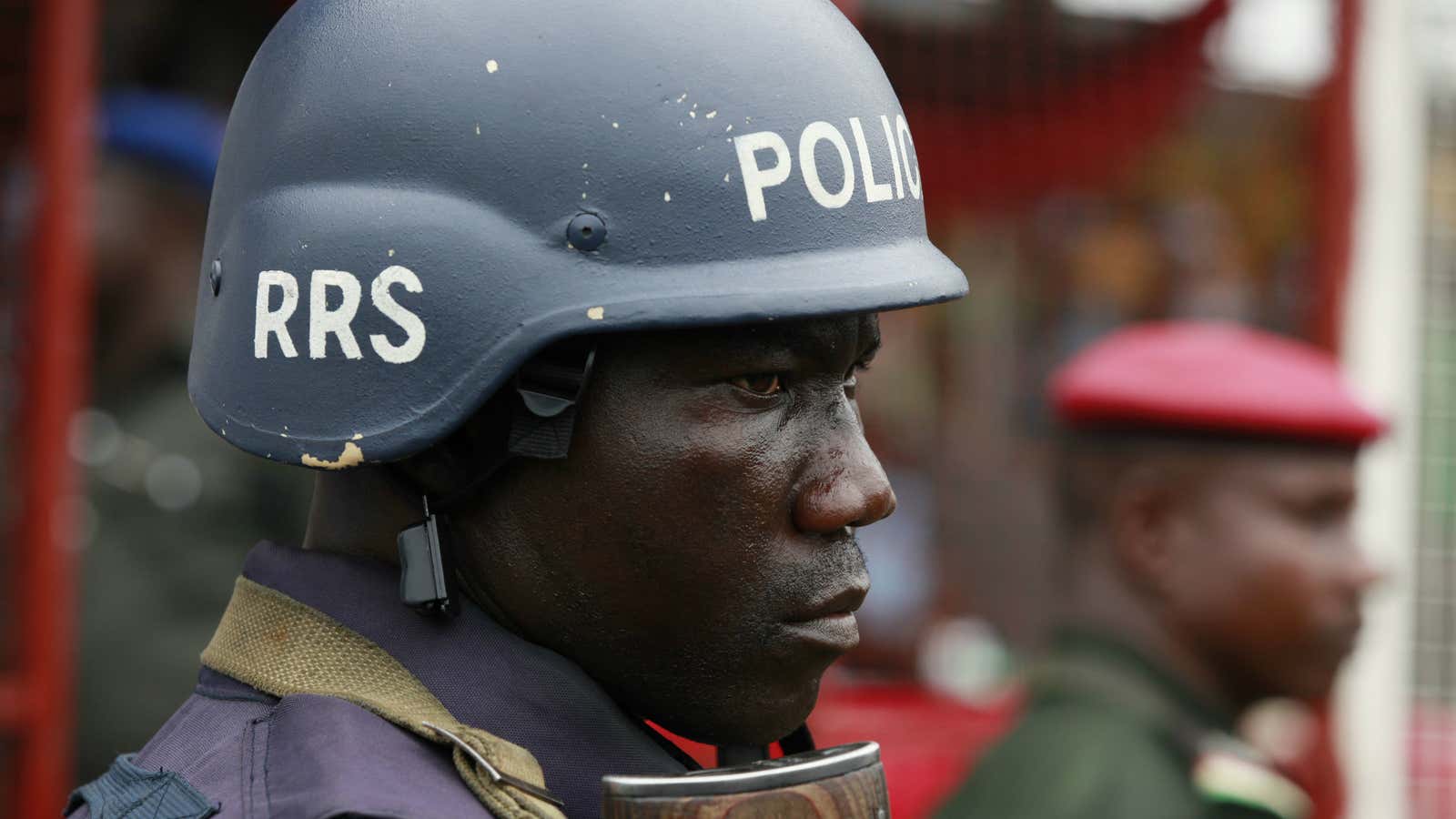This post has been updated
In Aug. 2012, I was kidnapped and robbed by policemen who were supposed to protect me. Three armed men from the Nigerian police force’s Special Anti-Robbery Squad (SARS), a special unit originally set up to combat rising rates of armed robbery, accosted me outside a bank and asked me to “identify” myself but hurriedly dragged me into a waiting unmarked Volkswagen Golf car before I could do so.
During the two-hour drive, I was illegally searched and accused of being a “Yahoo boy” (a local term for internet fraudsters). The policemen threatened to detain me at a police station on the outskirts of Lagos. Eventually, the ordeal ended when the men spotted a young man driving a new saloon car. Driving a new car meant he was a better profile fit for their extortion. To make room for the new “suspect,” I was dropped off in the middle of nowhere, miles away from home, but not before they emptied my wallet of cash.
For many young Nigerians, that tale will feel familiar as there’s a good chance they’ve had a run-in with SARS operatives, or know someone who has. That’s why this week, young Nigerians have taken to social media to start an #EndSARS campaign calling for the unit to be scrapped. A petition to scrap SARS has already garnered over 24,000 signatures.
Nigerian social media has been awash with tales of arbitrary arrests, torture and blatant extortion by SARS operatives. Seemingly innocuous features like sporting dreadlocks, owning a laptop, a smartphone or having a tattoo are cited by SARS operatives as reasons for suspicion of possible criminality. The police force initially denied the claims but, in a turnaround, the police chief has ordered a reorganization of the unit as well as an investigation into the allegations. The police chief has also ordered a new human rights training program for the unit.
For the most part, SARS operatives have been beyond reproach. There are several reports of SARS prison cells referred to “abattoirs” as suspects taken there likely end up dead. Indeed, an Amnesty International report last year found “credible allegations” that SARS operatives “perpetrate acts of torture and other cruel, inhuman or degrading treatment or punishment against detainees in their custody on a regular basis.” In September, in a rare case, a court convicted five SARS operatives of the extrajudicial killing two young men.
Recent data backs most of the gory rhetoric: the 2016 World Internal Security and Police Index ranked Nigeria’s police force ranks as the worst of the 127 countries in the report. In August, a survey by Nigeria’s statistics bureau showed police officers were the most likely of all civil servants to solicit and collect bribes.
While the #EndSARS campaign focuses on excessive police brutality, it also sheds light on flaws in Nigeria’s criminal justice and policing system. Policemen are known to arrest and detain people on frivolous charges only to release them after arbitrarily set bail fees have been paid. In cases where bail fees aren’t paid, those citizens often find themselves serving time in maximum security prisons. As a result, 72.5% of inmates in Nigerians are serving time while without being sentenced.
